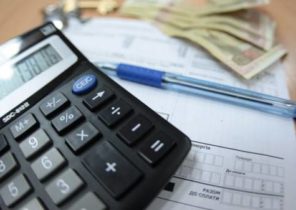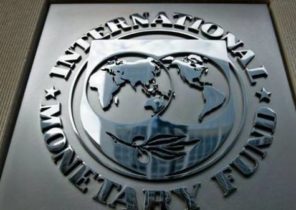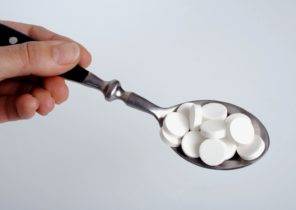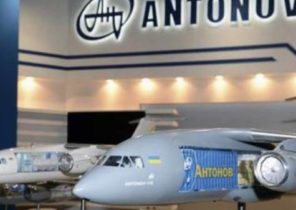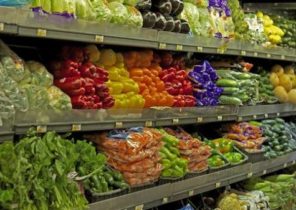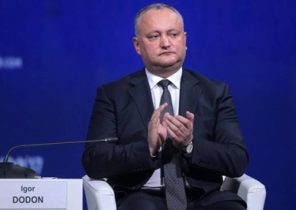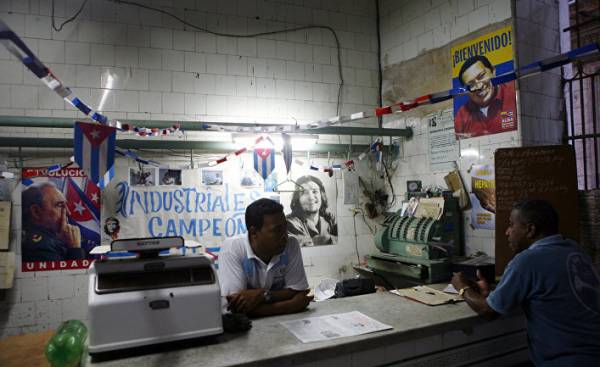
This publication is the first in a series of works United by the project “Analysis of historical precedents and development of recommendations on diversification of the resource economy.” A project undertaken by the Carnegie Moscow Center with the financial support of the Ministry of foreign Affairs and Commonwealth office (UK), is designed for at least three years.
The purpose of it besides creating a large array of descriptive and analytical material is to formulate individualized recommendations for countries with resource economies depending on such parameters as population size and scale economies, institutional, political and economic history, the proportion of the resource in GDP, and so on. The attention of authors is primarily focused on Russia.
The study of resource-dependent economies can be scaled to any size depending on what resources to include, what historical period to consider what aspect to study. However, today, in the twilight almost 15-year period of abnormally high prices for hydrocarbons, it would be logical to limit the countries that experienced the hydrocarbon dependency in the beginning of the XXI century, and to assess the degree of success of their experience in diversifying the economy. This is especially true for Russia ─ country, whose economy and political system have undergone significant changes in connection with the let in upon the country a flood of petrodollars.
In this work, we conducted a comparative description of the development of the economies of the ten countries — leaders in production and export of hydrocarbons. The study covers the period from the second half of the twentieth century to the present day. Despite the huge variety of scenarios (from civil war or revolution to stable prosperity, from welfare states to States with soaring Gini coefficient, from very open to completely isolated economies), the work can be done a number of interesting conclusions.
Abnormal returns from mineral exports, as well as the abundance of this resource in the country, give rise to deformation of the economy in all cases, regardless of the political system and economic policy.
Achieving economic diversification in the countries — exporters of oil is challenging. Diversification strategies implemented in most of them, have not crowned success. There are virtually no examples of countries that have been able to successfully diversify the economy, freed from oil dependence, especially in cases where oil production even amid falling prices have helped to keep the structure of the economy without social upheaval. The success or failure of diversification depend more on the implementation of appropriate economic policies than from other circumstances. Nevertheless, many countries — exporters of oil show a different degree of success in diversifying its economy.
Diversification of the economy in all countries, even the most successful, there was a very long and slow, almost stopping in moments of rising oil prices.
The openness of the economies, the attraction of foreign capital, removal of trade barriers are certainly positive factors. In none of the studied economies, such a policy has not resulted in the formation of economic dependence, nor to the change of the political system in connection with such openness. In the process of diversifying a key role to play there is a dominant partner, a country which receives economic benefits through the use of cheaper labor, and territorial resources and other features of resource-dependent countries. However, within our observation, this factor does not increase the risk of the economy.
Reforming the economy at the expense of resource revenues should take into account the impact on existing economic relations. The preservation of incomes of citizens should be controlled through the mechanisms of the welfare state, centralized distribution, or some other mechanisms. Ignoring the interests of major social groups in the reform process, and not part of the natural development of resource dependence is a threat to the stability of the state.
Sovereign wealth funds, formed in boom times, is a successful tool which allows you to reserve funds; to alleviate problems with the financing of the public sector, following the decline in export revenues of the resource; to maintain liquidity in the economy. But they carry out their role more successful the closer their mandate to the mandate of the private equity Fund.
The effectiveness of the same measures and initiatives can drastically vary depending on who and how to implement them. The key drivers of efficiency here are the experience and ability of management (effectively attract foreign management on a competitive basis), as well as reducing costs associated with a mismatch of motivation of elites to the challenges of development of the country. In particular, a very important factor — reduce corruption, which is achieved by adoption of modern standards of transparency, integration in the global legal environment, adoption of international standards of regulation, a move towards the legal system of the British type.
The key issue is to identify investors and economic agents risk of doing business in the country. The main factor in the increase of the level of risk is not only a weak system of protection of the rights of economic agents, but also inconsistency of actions of the government, its inability to take responsibility for the maintenance of social and business agreement in a broad sense of the word. In this country, seeking low-risk business, show good results in combating resource dependence and relatively high level of diversification of the economy regardless of the political system.
In the development of non-oil industries, focus on import substitution leads the economy to a standstill. Created uncompetitive production that require subsidies from the resource sector and increasing income of consumers from distributed abnormal earnings for exports replaced consumption imports — regardless of policy. On the contrary, the focus on export diversification, even in the initially weaker base, allows the use of investments from resource sectors to create a competitive industry and service sector, albeit with an increase in the share of imports in consumption. Unjustified fear seems to create the high-tech industry with high added value in the absence of visible competitive advantages: experience shows that the creation of such clusters reaches success if they met all the other conditions.
Meanwhile, the redistribution of income from resources can take two forms. The first is a higher extraction of the resource income and the reduction of taxation. The second — less high extraction of the resource revenues and increasing taxation. The first path leads to delamination, but also greater diversification due to the growth of motivation to create an alternative business and obtaining presernova income. The second provides a more even income distribution, but decreases the diversification of the economy.
The growth of public expenditure, including in the field of investment, regardless of the direction of investment moves the economy in the region businesses with low added value, which affects diversification and overall growth of the economy. Apparently, the preferred is the policy of the state reservation, cost constraints of the public sector and creating conditions for attracting private and foreign investment.
To diversify the most important task — keeping the cost of the non-oil productions at a reasonable level. A significant part of the cost is labor, so effective methods are:
— differentiated tax cuts (particularly on the income of corporations, labor and individual income) in areas not related to natural resources;
— other forms of subsidization, including export;
— attraction of cheap labor from abroad in nerealnye industry.
In this case the first two ways may reduce the competitiveness of presurned production, and an aggressive employment of labour migrants is preferred.
Venezuela: oil plus socialism
Venezuela during the XX century has experienced several oil booms and bust and almost every time out of the cycle weakened. The beginning of the XXI century turned out to be more difficult: oil revenues allowed the country to experiment with radical socialist practices (Bolivarian “socialism of the XXI century”), which ultimately put the country on the brink of a humanitarian catastrophe.
Venezuela is a Latin American country located in Northern South America. A population of 31.1 million people. The rate of population growth from 1950 to 2015, significantly above the global average of 2.67% on average per year (1.41% in 2010-2015) against the global growth rate of 1.66% (1.18% in 2010-2015). The population is relatively young: the median age was 27.4 years (the world average is 29.6 years). The ethnic composition is diverse: descendants of immigrants from Spain, Italy, Portugal, Germany, Africa, Arab countries, indigenous Indians. The main language is Spanish. The main religion is Catholicism.
The discovery of oil fields Mene Grande (Mene Grande) near the Gulf of Maracaibo in 1914 marked the beginning of the oil history of Venezuela. The share of oil exports soared from 1.9 to 91.2% for the years 1920-1935. The oil sector attracted more labor, peretekanie primarily from agriculture (traditionally a major item of export was coffee). The appreciation of the Bolivar against the dollar led to the loss of competitiveness of domestic production. In 1940, the government realized that it is cheaper to import many foreign goods than to produce at home.
In 1943 was introduced the increased tax on the profits of international oil companies. This, in turn, sharply increased the government’s reliance on the oil sector and reduce the role of taxation of the population. No need to report on the use of a small fraction of tax revenue coming from the population, led, in the opinion of Professor Terry Lynn Karl, the development of an unhealthy democracy with authoritarian tendencies.
Realizing the dependence of the economy on imports, in the 1960s, the government introduced the fashion at the time in Latin America, a policy of import substitution, the theoretical foundations of which were laid by the Argentine economist Raul Prebisch. Young Venezuelan industry immediately became a recipient of public transfers, lost the motivation to improve product quality and increase productivity. Despite GDP growth at 4.6% per year between 1960 and 1974, the efficiency of investment fell, the growth rate of per capita GDP decreased.
According to estimates Richard Auty, due to the effects of “Dutch disease” in 1972, the share of agriculture in non-oil GDP was two times lower than expected, while the industrial sector produced only two thirds of the expected volume. Thus, according to the researcher, the influence of the “Dutch disease” remains undervalued, as it must also take into account the protectionist policy of the state.
The oil shock of 1973 caused a significant increase in government revenue. In 1975, the state passed 9.68 dollar for each sold abroad of a barrel of oil, while in 1972 only 1.65 USD. This has led to a sharp increase in government spending.
In 1973, Carlos Perez won the presidential elections and began to implement a mega project of the “great Venezuela”. This period in the country called “Saudi Venezuela” (Venezuela Saudita). Perez has created a system of subsidies, improved late Hugo Chavez. The plan involved not only the expansion of the state in the labor market — job creation and wage hikes — but also to attempt to diversify exports through government intervention in the non-oil sector of the economy. Most of the new jobs created in the public sector and funded by the government, which caused the growing demand in oil money to pay salaries.
The subsequent drop in oil prices, obviously, was the cause of the budget deficit, rising public debt and the rejection of further implementation of ambitious plans. Starting in 1979 and over the next 23 years the non-oil per capita GDP fell by 0.9% annually (the total drop amounted to 18.6%), although at this time saw the growth of the labor force, which ceteris paribus should have a positive effect on this indicator. Non-oil GDP divided by the number of workers employed in the non-oil sectors of the economy, fell annually by 1.9%. For the whole period the decline amounted to 35.6%.
February 18, 1983 received in Venezuela the name “black Friday”: the day have fallen sharply Bolivar on the background of high foreign debt and falling oil prices. Average prices declined in 1983 to 29.5 per dollar (c $ 32 in 1982, 33 dollars in 1981). The welfare of the majority of the population was undermined. The state became unable to Finance its social programs. The days of “Saudi Venezuela” has gone down in history.
Another collapse of oil prices in the 1980s put additional pressure on the government. In 1989 the Central Bank was deprived of almost all their foreign reserves. In Venezuela we all remember the bloody riots “Caracazo” after the presidential elections of 1989. When Carlos andrés pérez won his second term. The first fell on the oil boom, but at the end of the 1980s, oil prices collapsed — and Perez decided to start a new period of reforms. The growth of prices for petrol by 100% (from nearly zero) turned into riots, army intervention and the deaths of about 300 people. By the way, “Caracas” became the prelude to the riot in 1992 and the subsequent arrival of Chavez to power.
Dashing nineties
In the last decade of the XX century there was a gradual fall of confidence in the political establishment. Huge oil wealth and the constant promises of politicians er good life inflated public expectations of economic development, which are constantly met with the one-sidedness of the resource path. The idea to reform the economy was not popular among the population and politicians, as it was inevitably linked with the transformational recession. Against this background, the emergence of the figure, to practice the populism of the socialist persuasion, was the matter of time. A word about the fact that the national wealth just because is not going to benefit the country that are in the hands of corrupt politicians, quickly resonated with the population.
This figure became an officer in the Venezuelan army, Hugo Chavez. In 1992 he attempted a coup but failed and ended up in prison. However, public opinion was on his side, and after a few years he and his supporters were granted Amnesty.
In 1998 Chavez won the presidential elections. The new economic program of Venezuela was the “Bolivarian socialism of the XXI century”. The combination of populism and resource wealth (paired with a new wave of growth in oil prices) has led to the incredible scale of state expansion, the strengthening of authoritarian trends and the subsequent economic decline.
The distribution of rents: more people?
The power of having a large amount of rent, often relies on the distribution of it among the relatively narrow circle of persons, which guarantee support for the current regime.
However, in the case of the “socialist project” of Hugo Chavez Renta was supplied primarily to the wider population with low incomes.
Appeal to them and not to the existing establishment has allowed chávez to have a high support of the population throughout his reign.
Immediately after the 1998 elections, Chavez begins to implement a plan to change the Constitution. He manages, despite the resistance of Congress to hold a referendum with a proposal to convene a so-called constitutional Assembly. 87% of the population voted “Yes”. The results of the referendum held elections to a constitutional Assembly. The boycott of elections by opposition parties provided supporters of the President 123 seats out of 131. Further, the Assembly adopts a number of authoritarian laws: abolition of the upper house of Congress, the transfer of the center of the powers of the regions, the award of the President’s authority to convene the referendum. Also enhanced the control of the President over the military. A new Constitution voted 79%, and with it, in 2001, Chavez was reelected President with 59.7 percent of votes.
During the two-day coup in April 2002, when the presidential Palace was occupied by opposition forces, on the streets, thousands of his supporters. The coup failed. In 2003, the opposition has demanded to call a referendum for the resignation of the President (constitutional issues, after half of the term the President can be revoked). In 2004, the results of the referendum, Chavez won again from 59.9%. In 2006, he was re-elected with 63% of the vote, and in 2012-m on their recent elections was 55%. Thus, every time one way or another Chavez managed to mobilize the electorate need.
The end of each electoral cycle was accompanied by a generous social programs aimed to support low-income households.
The chavismo combines the features of a participatory democracy and clientelism. On the one hand, the regime has repeatedly resorted to mobilizing their supporters, requiring them to participate in political life. With the other access to rent strictly depended on political beliefs and so formed his own, although broad enough customer base.
Official statistics on the “success” of oil development
Many researchers — some even enthusiastically — that’s when Chavez fell to the level of inequality. If you look at the Gini coefficient, a measure of this parameter, it becomes apparent that the beginning of 2010, the inequality in Venezuelan society really has declined: in 1998 the index was equal to 49.5, and in 2009-m — 41. However, first, the reduction of inequality occurred in other Latin American countries. Second, it is possible that it was due to the depletion devastated by the Venezuelan expropriation of the rich. Thirdly, the quality of the Venezuelan statistics, to put it mildly, is imperfect.
Poverty also became lower by the end of 2000. In 1999, about 42% of households were considered poor, and 17% of the families belonged to the extreme poor category. At the beginning of 2007 to the first category consisted of 28% of families, and to the second — 8%.
Increased access to education. In 2006-2007, universities received 86% more students than in 1999-2000. In high school classrooms also occurred 54% more boys and girls. Elementary education (1-9-e grades) was also obtained for 10% more children. Schools have introduced free meals, which was used about 3.9 million students.
The official unemployment rate fell thanks to social programs create jobs. In 1999, at the dawn of the era of chavismo, the unemployment rate was 15.6%. In 2008, the index fell to 8.2%. The downside of these programs — a lot of difficulty with dismissal of personnel, the actual prohibition of dismissal without the consent of the state structures. This system, on the one hand, protects employees, including negligent and on the other discourages businesses to create jobs.
The underside of the Bolivarian “socialism of the XXI century”
All these “successes”, unfortunately, proved to be highly unstable, and decent, at first glance, the statistics are deceiving. Before the fall in oil prices, the country entered large-scale crisis. In the early 2010s, the budget deficit was above 10% of GDP, and inflation reached 50% per year — even then, the Bolivarian “socialism of the XXI century” was faltering.
The foundations of chavismo is not something unique to Latin America, Venezuela in particular. This is a standard Latin American populism, though in a rather radical incarnation. American economists Rudiger Dornbusch and Sebastian Edwards in the book “the macroeconomics of populism in Latin America” define it as “a Policy focused on redistribution of resources with disregard for inflation and fiscal risks, and underestimate the economy’s response to non-market measures of the government.” The consequences of such a policy have experienced at one time practically all countries in the region.
Itself Venezuela as Caracas economist said Anabella Abadi, experimenting with price controls still in 1939. The “novelty” of chavismo in radicalism and that by the second decade of the XXI century Venezuela remained almost the only world reserve economic absurdity.
The economic essence of the “Bolivarian socialism” is quite simple. This non-market system, the distinctive features of which are the following:
— regulated prices for basic goods (goods for precio justo “fair price”, as a rule, several times lower than the market);
— regulated courses of the national currency — Bolivar[14];
— various programs (questionable effectiveness) in favor of the poor;
— expropriation of private businesses and land (5 million hectares) in the state. Claims against Venezuela at the International Centre for Settlement of Investment Disputes in all expropriations during the reign of Chavez and Maduro reached 17 billion dollars.
Unfortunately, chavismo does not work. Low prices lead to shortages. In addition, products at low prices inhibit trade: not created jobs in industry and agriculture, everything is imported. Items purchased as precio justo, resold at market prices. Create preconditions for corruption: official with access to cheap rice or the dollar, could become a millionaire just by selling them at market prices. Expropriated land and the company under Savitski leadership, work badly. Foreign companies in Venezuela are experiencing difficulties with repatriation of profits.
The chavismo at the same roads. The budget deficit in Venezuela since 2009, constantly two-digit (subsidies are estimated by economists at Bank of America Merrill Lynch 10% of GDP). The budget hole just shut up — emissions, which rise to inflation.
The socialist experiments would hardly be viable without the money going to Finance a fantastically inefficient and corrupt economy. Source of funds — oil (95% of export revenue), or “black cocaine” (coca negra), as it is called in the country. The populism of Chavez — Maduro added, the symptoms of “Dutch disease”: loss of competitiveness of sectors of the economy not related to mining.
Humanitarian disaster?
The fall in oil prices halved since the end of 2014 all problems escalated dramatically. Export earnings fell from 74 billion dollars in 2014 to 37 billion in 2015. Import blown away, but not so significantly from 51 billion to $ 39 billion In numbers nothing wrong there, similar in scale decline experienced by many oil-producing countries, but in 2016, in Venezuela the shortage of goods at “fair” prices became prohibitive.
According to the IMF, GDP in 2014 fell by 3.9% in 2015 and 5.7% in 2016, the forecast decline of 8%. Supposedly defeated Chavez poverty has quickly reached record levels as soon as oil prices fell. In 2015, the level of extreme poverty has reached 49.9 percent, poverty at 23.1% (in 2007 it was 8% and 28%, respectively). In 2014 the inflation rate reached 63%, in 2015 — 275%, and in 2016 we see a real hyperinflation. The government resorted to the printing press. In 2016 36 aircraft brought into the country fresh banknotes.
There is no famine, but there is a shortage of food and other goods at state prices: not enough medicines, rice, flour, soap, sugar, even toilet paper. At market prices, you can buy a lot (as well as in the USSR in the late 1980s, the co-operators), but for a lot of money. Thus, for example, the salary of a Professor of chemistry at the University in Caracas — 40 thousand bolivars, or $25 at the market rate, a lot of people paid a minimum wage of $20. Here, by the way, the reason for the “success” of chavismo in reducing poverty: the level is calculated at the official rate of the Bolivar, at the market rate even higher middle class is on the verge of poverty. To purchase goods via presio justo poor people have to stand in line for hours just hoping that the shops something will be delivered. Often these queues turn into riots.
“Distortions in the exchange rate and prices has created an economy of arbitration, in which too many applicants to reduce the flow of petrodollars, the report notes Bank of America Merrill Lynch “Venezuela Viewpoint: The Red Book”. This created a paradoxical situation: the country imports 51 billion in 2014 and 39 billion in 2015 (1660 and $ 1,200 per capita, respectively) experiences a shortage of basic goods, which is enough in poorer States”.
The paradox to explain: procurement officials, the goods EN masse to the adjacent Columbia, where it’s resold at normal market prices. The Colombian city of Cucuta has long been a centre of smuggling, as well as the largest venue for exchanging bolivars for dollars. Cashing in on the smuggling savitskie officials and those close to them businessmen, the so-called oligarchy, and controlling the border (drug trafficking) army generals. These are the main clans controlling decision-making in the country.
Another option: cheap products with a fixed government price are sold in markets within the country at market prices, forwards or back corrupt officials directly, or people who almost professionally stand in lines for several hours a day, and then resell the products on the market, the so-called bachaqueros. For many residents of large cities, Queuing and the resale is almost the only way of earning.
Deficit, with a significant flow of petrodollars — a paradox inherent in socialist economic management. It is observed in the non-tradable sectors of the economy. Example — power industry. Electricity is available intermittently throughout the country. On hydroelectric power station Guri produce about 75% of all electricity of the country in 2016, the drought has led to a serious drop in the water level. President Maduro claims that all the matter in the weather anomaly El Nino.
Energokrizisa to Chavez almost was not, but when they happen, such as in 2010.
The main power company Electricidad de Caracas under Chavez in 2007 nationalized, electricity set low price. In the end, consumption soared (in Colombia per-capita electricity consumption is three times lower), in fact almost free online no need to save. The average cost of a kilowatt-hour in Venezuela in 2014 amounted to 0.03 per dollar, and in fact much less, since it is a conversion into dollars at official, is greatly reduced even at a time rate (for comparison, in Colombia — 0.1 dollar in Brazil — 0,16, Chile — $ 0.15). Built by Chavez petrodollars social housing for the poor Gran Mision Vivienda were not fitted with electricity, but was supplied with plenty of appliances at discount prices precio justo under another social program “Mi Casa Bien Equipada”. In the end, “cheap” electricity at bargain prices proved to be very expensive: due to the disruption of many businesses, and even some of the metro of Caracas have to put the diesel generators.
De-industrialization is evident in many industries. In 2000, Venezuela was producing 21 thousand cars a year. For the first half of 2016 released a total of 1.8 thousand steel Production in 1980 was about 2 million tons per year, by 2006 it rose to about 5 million tonnes and since then started to decline sharply: up to 1.5 million tons in 2014 and to 347 thousand tons in the first ten months of 2016. Production of cement in 2000 was 7.9 million tons, and in the first five months of 2016 produced only 1.2 million tonnes.
The decline of oil production
The crisis has affected oil production. Throughout the twentieth century Venezuela, like other oil-producing countries, to the extent possible “win” the oil revenues from the mining companies. Initially, the government relied only on a fee for the concession and a small percentage of production. Over time, however, governments have been claiming an increasing share. In 1943 in Venezuela the revenue sharing already in half. In 1970 the government had already received 55%. In 1976 on the global wave of nationalization of the oil sector, the state company Petróleos de Venezuela (PDVSA).
The rise in oil prices in the early 2000-ies and, consequently, the growing revenues from oil and gas production has resulted in increased claims of state in the oil sector. Government spending after coming to power, Chavez is constantly growing. In 2002, Chavez wanted more control over the main source of state revenues as PDVSA. The company has resisted the President, after which several top managers of PDVSA were dismissed.
In December 2002, the company’s employees organized a strike against the policies of Chavez, demanding early elections. The 19 thousand employees were dismissed and replaced by unqualified chavistas. As said chavist PDVSA Rafael Ramirez, “all who do not support revolution, you can get in Miami.” It was created by the relevant Ministry, which performed the functions of the management company, and she PDVSA had become the largest donor to the social programs of the country.
The company was formed the Foundation for social and economic development Fondespa. Between 2003 and 2008, PDVSA has spent more than 2.3 billion dollars for various social programs. In addition, the company performed the role of “employer of last resort” for supporters of Chavez.
In 2007, Chavez expropriated oil assets of ExxonMobil and ConocoPhillips from the failure of companies to give PDVSA a controlling stake in the Orinoco Delta. Total, Chevron, Statoil and BP agreed to the terms of Chavez and has reduced its share to a minority.
Venezuela has the world’s largest proven oil reserves: according to BP Statistical Review of World Energy, they make up 46.6 billion tonnes (17.5% of world reserves). But these huge reserves, located mainly in the Orinoco Delta, it is hard to extract because of the high density of oil (oil Sands). For resource development requires technologies that are available, usually large international companies.
Squeezing foreign companies out of the country was not in vain: the production of oil in the country fell from 3.2 million barrels per day in 2001 to 2.6 million in 2015. in addition, Venezuelan oil is trading now at a huge discount to WTI (the main American kind). In may, he reached up to 25% (previously the Venezuelan mixture was traded approximately at the same level with WTI, and in 2011-2013 with a premium to WTI).
“There are several reasons, says strategist Venezuelan company Knossos Asset Management Daniel Urdaneta-Zubelevich. — First, extraction of light and low-sulphur varieties are gradually replaced by production from oil fields where the oil worse. Secondly, after leaving the country several foreign oil service companies are more difficult to maintain the required level of quality. Thirdly, the Venezuelan suppliers are experiencing difficulties with Bank financing and insurance and are forced to provide customers with discounts”.
Oil revenues in Venezuela was less, and it is necessary to pay the debts. “Revenue from oil exports at current prices (around 50 USD./Barr. WTI) is about $ 3 billion, net sales, excluding lower of 1.5-1.8 billion dollars a month, said Urdaneta-Zubelevich.- Moreover, the average monthly expenditure for the payment of the debts and 0.75 billion dollars.” To calculate the volume of debt to GDP, not a trivial task; it is unknown at what rate to consider. At market Urdaneta-Zubelevich estimates the debt of Venezuela to 200% of GDP.
According to the IMF’s traditional current account surplus starting in 2015 was replaced by a deficit at 7.8% of GDP in 2015 and 3.4% in 2016. Apparently, this is a consequence of reduction of prices on oil and deterioration (with a surplus in the years 2000-2010 to zero in 2015) trade balance. Although again the Venezuelan statistics are extremely inaccurate due to the multiplicity of exchange rates.
Why not just Venezuela will declare a default because of the critical situation in the country? PDVSA have enough assets abroad, particularly in the United States, including major oil refiner Citgo Holding Inc. In case of default, they will be arrested, and the cash flow PDVSA will suffer, and companies will be extremely difficult to sell oil. In addition, PDVSA buys in the US light crude oil grades, in order to mix with their ultramarine varieties. In case of default to carry out this process will be more difficult.
However, if the price of oil will fall to $ 30./barrel. the balance can change and the risks of default will increase. But even at $ 50./Barr. the company can not cope with the debt payments. 6 Oct 2016 PDVSA announced a swap of its bonds, offering the holders to replace securities maturing in 2017 on the other — maturing in 2020. In this case, the Deposit of the bonds with a new maturity of American steel assets to PDVSA (50,1% Citgo Holding Inc.). 39.4% of holders agreed to the deal, in the end, PDVSA will reduce payments in the period of 2016-2017 years 2,799 billion and increase them 3,367 billion in 2020, excluding interest payments.
Revolution ahead?
The current situation in Venezuela could be called pre-revolutionary. A huge queue of five million in Caracas and other cities of the country threatened to escalate into a riot and a revolution. However, to predict where and when you accumulate the necessary critical mass, it is impossible. The opposition is strong, but fragmented and has no recognized leader. A possible candidate is the sitting in 2014 in jail for organizing street protests the leader of the party Voluntad Popular Leopoldo lópez. The former leader Henrique Capriles Radonski for the last three years lost some popularity because of the compromise positions in relation to power.
Sporadic riots until successfully suppressed by the authorities. To resolve the situation critically is another important factor: which side is the army. Studies of coups say that the army was the main factor affecting the likelihood of a coup. And in Venezuela, where the military play a huge role in society, even more so. As noted by the political scientist Eric Nordlinger in the book “Soldiers in Politics: Military Coups and Governments,” the Venezuelan President Romulo Betancourt for the first time in the history of the country managed to see out the end of his second term(1959-1964) only thanks to the “generous wages, faster careers and opportunities of shadow incomes in the army.” Only in Venezuela in the twentieth century, there have been 12 military coups.
“Chavez, and then Maduro bribed the army, says Urdaneta, Zubelewicz. The army owns a lot of businesses. There is a Bank BANFANB, raw material company Camimpeg CASA — supplier of food to the Ministry of food. In addition, the military own a lot of companies through the shell structure”.
Maduro, unlike Chavez, is a native of the army. He is from a family of Union organizers. But the most influential came from a military environment surrounded by Maduro is considered to be ex speaker of the Parliament of Venezuela, who retired from his post in early 2016, Diosdado Cabello. This friend of Chavez along with him he participated in the failed coup against President Carlos andrés pérez in 1992 and later supported Chavez during a brief coup in 2002. Since the death of Chavez, Cabello became almost more powerful figure in the country than Maduro. Cabello is suspected by the US authorities in connection with drug trafficking. Similarly, in United States drug trafficking suspect senior generals including former Venezuelan interior Minister Ramon Rodriguez Cucina and former defense Minister Henry Rangel Silva.
Despite the privileged position of the army under chavismo, to exclude the possibility of a military coup or supporting the insurgent people’s army, is impossible.
The fragmentation of the state on the model of Colombia of the late 1990s is unlikely to happen in Venezuela, unlike Colombia, there is a strong centrifugal tendencies. Twenty years ago, bogotá was controlled only 40% of the country. The remaining 60% was under the control of the leftist rebel group FARC and the drug cartels (paramilitares). In Colombia, the background of the actual disintegration of the country has become a feature of the resource base of different groups paramilitares related to cocaine. Cocaine is easy to manufacture, and transportation routes flexible. Therefore, the overlap, for example, one of the routes does not affect the viability of a particular Autonomous groups: is found a different route. In the case of Venezuela, whose main resource is oil, the heavy reliance on pipelines: the control of the state greatly affects the possibility of the existence of the group, for example controlling oil field.
Venezuela is unique for the twenty-first century economic mismanagement. A country with rich oil resources on the brink of a humanitarian disaster because of socialist experiments, Chavez — Maduro. The latter would hardly be possible without funding them through oil rents.
